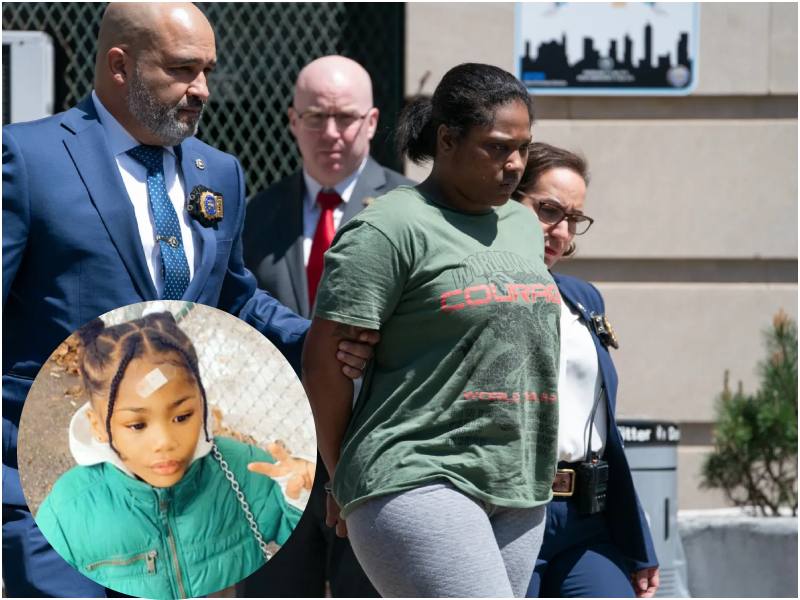Lynija Eason Kumar, a resident of the Bronx, has been formally indicted on charges of murder and manslaughter in connection with the tragic death of her 6-year-old daughter.
The indictment follows a distressing incident where authorities discovered the lifeless body of Jalayah Eason in the family’s residence within NYCHA’s Forest Houses.
According to prosecutors, the child exhibited evidence of prolonged abuse, including recent and healing bruises and scars, prompting a thorough investigation into the circumstances surrounding her demise.
Reports suggest that between March 1 and the day of discovery, Kumar allegedly subjected Jalayah to horrific acts of violence, including hanging her in a closet and inflicting blunt force trauma.
The city’s medical examiner determined the cause of death to be a result of severe child abuse, including asphyxiation, blunt force injuries, and malnutrition.

Furthermore, the apartment where the tragedy occurred was reportedly unfit for habitation, and Jalayah’s siblings, who were also found in the residence, displayed signs of abuse and neglect.
In light of these developments, Bronx District Attorney Darcel Clark emphasized the pursuit of justice for Jalayah and underscored the importance of providing support and services to her surviving siblings.
The case underscores the urgent need for effective legal measures to combat child abuse and ensure the protection of vulnerable individuals within our communities.
Potential punishment for Jalayah Eason’s mother
Given the nature of the charges, Kumar is likely to face significant legal repercussions if found guilty.
Murder and manslaughter are among the most serious criminal offenses, carrying severe penalties intended to reflect the gravity of the harm caused to the victim and society as a whole.
In New York State, where the alleged crimes took place, the penalties for murder and manslaughter vary depending on the specific circumstances of the case, including the defendant’s intent and the degree of culpability established by the prosecution.
First-degree murder, which involves premeditation or specific aggravating factors, is punishable by a maximum sentence of life imprisonment without the possibility of parole or, in some cases, the death penalty.
Second-degree murder, which encompasses intentional killings without premeditation or certain other circumstances, carries a maximum sentence of 25 years to life in prison.
Manslaughter, on the other hand, involves the unlawful killing of another person without malice aforethought. In New York, manslaughter in the first degree is a class B felony punishable by a maximum sentence of up to 25 years in prison, while manslaughter in the second degree is a class C felony carrying a maximum sentence of up to 15 years.
In Kumar’s case, the prosecution will likely seek to prove that her actions directly contributed to Jalayah’s death and that she acted with criminal intent or recklessness sufficient to establish her guilt beyond a reasonable doubt.
If convicted, Kumar could face a lengthy prison sentence commensurate with the severity of the charges against her.
Additionally, the court may consider aggravating factors such as the vulnerability of the victim, the defendant’s relationship to the victim, and the egregiousness of the conduct in determining an appropriate sentence. Moreover, Kumar may also face additional charges related to the abuse and neglect of Jalayah’s siblings, further increasing the potential consequences she may face.
Ultimately, the punishment Kumar faces will be determined by the facts of the case, the strength of the evidence presented, and the discretion of the court.
However, given the horrific nature of the allegations against her, it is likely that she will be subject to significant legal penalties if found guilty, serving as a stark reminder of the profound societal condemnation reserved for those who commit acts of violence against the most vulnerable among us.

